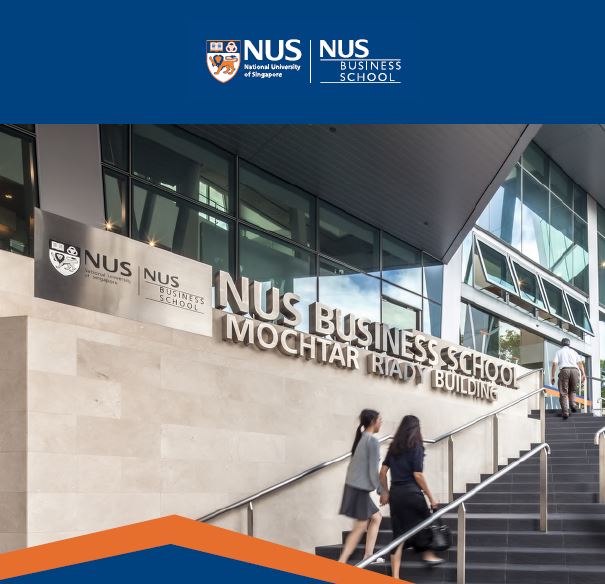NUS AMP 4 – Corporate Finance

Course Learning Objectives:
- Learn a brief introduction to the major strategic decisions including investment, financing, and dividend payout decisions.
- Understand the time value of money and estimate the cost of capital.
- Understand the difference between cash flow and net income.
- Estimate relevant cash flows on an incremental basis to make investment decisions.
- Make investment decisions using NPV, IRR, and payback method.
- Understand valuation using multiples such as price to earnings ratio (P/E) of comparable firms.
- Learn the limitations of using relative valuation to price unique firms with few comparables.
Faculty

Prof. Ravi Jain
Professor
Prof. Jain has won several teaching awards at NUS multiple times including the university’s Annual Teaching Excellence Award, the business school’s Outstanding Educator Award, and the MBA Program’s Best Lecturer Award. He is a co-author (with Zvi Bodie, Alex Kane, and Alan J. Marcus) of Investments Asia Global Edition (published by McGraw Hill), a textbook on investments and portfolio management that is widely used in the top business schools in Asia. He has published papers in academic journals on topics such as dividend policy, ownership structure, closed-end fund discounts, market microstructure, reverse takeovers, and direct share purchases. He has a PhD in Finance from the University of California, Los Angeles (UCLA).
Syllabus
- Corporate Finance - Session 1
- Corporate Finance - Session 2
- Corporate Finance - Session 3
- Corporate Finance - Session 4
Learning Objectives:
- Learn a brief introduction to the major strategic decisions including investment, financing, and dividend payout decisions.
Module Components:
Readings:
- Ivo Welch, Corporate Finance Chapter 16 and 20
- Case Study: The Case of the Unidentified Industries, Assessing a Company’s Future Financial Health, Pages 10, 11 & 13.
Videos:
- Overview of Corporate Finance
Learning Objectives:
- Understand the time value of money and estimate the cost of capital.
- Understand the difference between cash flow and net income.
Module Components:
Readings:
- Ivo Welch, Corporate Finance Chapter 2, page 16 onwards
- Ivo Welch, Corporate Finance Chapter 3, pages 37-44
- Ivo Welch, Corporate Finance Chapter 10, pages 213-216
- Ivo Welch, Corporate Finance Chapter 18, page 484
Excel Example:
- Essential Tools for Valuation
Videos:
- Essential Tools for Valuation 1
- Essential Tools for Valuation 2
- Essential Tools for Valuation 3
- Essential Tools for Valuation 4
Learning Objectives:
- Estimate relevant cash flows on an incremental basis to make investment decisions.
- Make investment decisions using NPV, IRR, and payback method.
Module Components:
Readings:
- Ivo Welch, Corporate Finance Chapter 4, pages 55-61, 68-71
- Ivo Welch, Corporate Finance Chapter 14
- Case Study: Phuket Beach Hotel: Valuing Mutually Exclusive Capital Projects
Excel Example:
- Making Investment Decisions
Videos:
- Making Investment Decisions
Learning Objectives:
- Understand valuation using multiples such as price to earnings ratio (P/E) of comparable firms.
- Learn the limitations of using relative valuation to price unique firms with few comparables.
Module Components:
Readings:
- Ivo Welch, Corporate Finance Chapter 15
- Relative Valuation Guidelines
Videos:
- Relative Valuation
